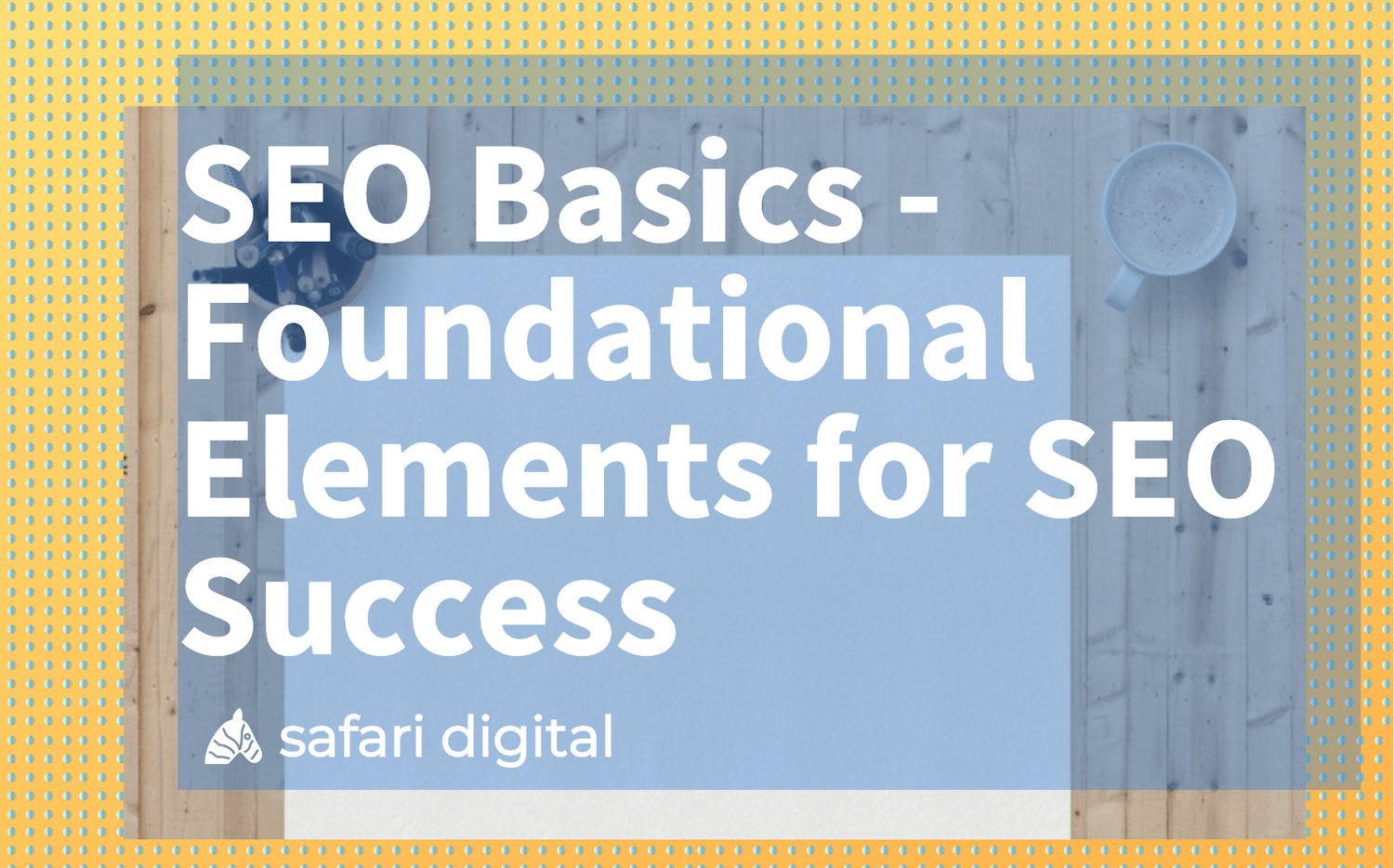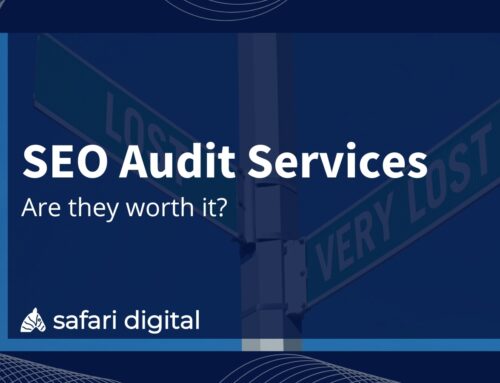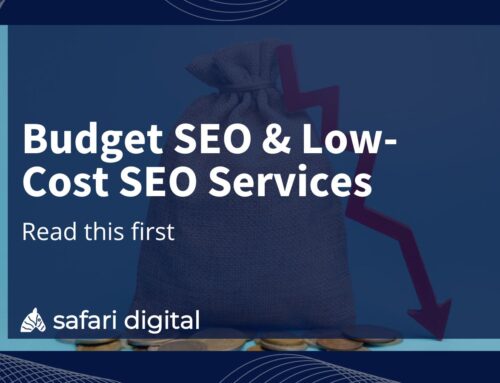
With so many search engine optimisation strategies plastered around the web, it can be difficult for beginners to know where to start. For experienced SEO professionals, the technical side of things plays an important role in an effective SEO strategy, however, for those who are just dipping their toes in the water, you need a foundation before you can start eyeing off the top spot in search results.
In this article, we’ll look at some of the most important SEO basics in an easy-to-follow structure. This guide will be a useful refresher for those who have a solid foundational knowledge of search engine optimisation, as well as being easy enough for those with no background to understand.
What is SEO?
Let’s start with the basics. Search engine optimisation starts with organic searches — the process where users place a search query into one of the major search engines. For most websites, organic searches are responsible for the bulk of web traffic. That means SEO has the potential to be lucrative for driving brand awareness, leads, and conversions.
In the organic search, the results that show up at the top of the page are there because they deliver the best pages for the query. SEO’s are responsible for optimising the content, information structure, and the technical aspect of a website to ensure that it appears towards the top of the search engine results pages (SERPs).
Search engines have a long list of specifications for ranking websites. According to the most recent data, Google users more than 200 different ranking factors in their algorithm to determine where websites will appear in the organic search results. SEO professionals are responsible for setting up or modifying pages to rank well according to search engine algorithms.
Create Relevant Content
In order to rank high in the search results, you have to know what people are searching for and how your website can address those search queries. The days of marketing professionals creating web pages that trick search engines into showing the results at the top of the SERPs are well and truly gone. Today, search engines want to show websites that best address user queries.
For SEO professionals, this means your pages need to be set up to address user queries by targeting relevant keywords and understanding how keyword intent affects search.
Keywords
Keywords are the search terms that your content features to attract visitors. Let’s say that you want to attract customers for the search term “Volkswagen Service Sydney”, you need to include that keyword in your page title, headings, body text, all the images, and other HTML attributes.
Keywords don’t have to be one or two words, in fact, some keywords — referred to as long tail keywords — can be made up of a large combination of words that directly address user queries.
Keyword Research
Effective keyword research plays a critical role in the success of an SEO campaign. It is impossible to run a successful campaign without doing your due diligence and understanding which keywords are going to attract relevant customers to your website. By identifying which keywords your potential customers are using, you can then create content that addresses these search queries. There are a wide range of free and paid SEO tools that can help you with keyword research. In general, paid tools like SEM Rush, Ahrefs, and MOZ provide the most up-to-date keyword data.
SEO tools will display things like monthly keyword search volume, keyword difficulty, and keyword competitiveness that can help you make an informed decision about which keywords are worth targeting. It’s also worth looking at what your competitors are doing and how they are targeting keywords. Visit their landing pages, product pages, and blog posts to understand how they are generating traffic and what you can learn from them.

Search Intent
We’ve previously discussed keyword intent at length.
Without getting into the minutiae of how keyword and search intent impacts a successful search engine optimisation campaign, let’s look at a few of the basics.
Search Intent refers to someone’s expectation when using keywords to perform a search query. For instance, if someone is looking to book a flight to Paris they may use the keywords “cheap flight to Paris”. This combination of keywords indicates a high user Intent. The user knows where they want to go, they are just looking for the best price.
Search intent typically falls into one of three different categories:
- Informational – the user is looking to learn more about the topic
- Navigational – the user wants to go to a specific site
- Transactional – the user has a specific purchase in mind
On page SEO
To get a complete rundown of the most important on-page SEO elements you can read our extensive guide.
When it comes to SEO basics, it’s important to know how different on page elements affect your rankings. Whether you’re creating landing pages, blogs, or how-to guides, search engines will examine these pages for relevance and suitability.
Search engines use search engine bots to crawl your pages looking for descriptive elements such as titles, headings, alt tags, and meta descriptions to see what you are covering on the page. In order to rank for relevant search terms, you need to offer clues by using relevant keywords, good on-page structure, original content, and various HTML elements that can help search bots to easily crawl your page.
A recent study found that the average page one result on Google was 1890 words in length — that’s a lot of content! Long-form pieces of content tend to deliver better engagement rates and a substantial amount of information that can satisfy user queries. Long-form content that address a subject in-depth will usually appeal to Google and therefore receive higher search engine rankings.
Site Authority
The days of Google using PageRank to determine the authority of a website are well and truly gone.

However, website authority still plays an important role in how websites rank in search engines. It’s important to generate brand mentions and positive online feedback about your site in order to increase your search engine visibility. Some of the ways that you can increase the authority of your website include:
Link Building
Backlinks or link building is one of the most important aspects of a successful search engine optimisation campaign. Building a respectable network of links to your website from a diverse range of relevant authority sources is the first step towards demonstrating the authority of your website.
Search engines will examine the kind of backlinks that your website is receiving to determine the authority and trustworthiness of your website. Websites with a large number of inbound links from respected sources will naturally rank higher in the search engine results pages.
It’s possible to gain links to your website by creating high-quality content that generates attention from relevant sources in your industry. You can also build links by reaching out to other webmasters and asking for a link in return for creating content – this is known as a guest post. Before you start firing off emails, it’s important to understand the difference between a good and back backlink, and what kinds of backlinks you should be avoiding.
Social Media
It might be surprising to see social media mentioned on a list of SEO basics, however, social media plays an important role in developing authority, popularity, and traffic for your website. You should create social media profiles on all of the big sites including Twitter, LinkedIn, Facebook, and Instagram as a way of connecting with your customers and proving your legitimacy to search engines. As of August 2023, you can now also manually add your social media profiles as links from your Google Business.
Focus on the User Experience
Create a website that people will love and search engines can easily crawl. It can be easy to get caught up in SEO and forget that your number one goal should be to create a website that uses enjoy and can easily navigate. Search engines use data accumulated from users on your website to determine whether your website is meeting the demands of the user. Some of the key metrics that search engines measure include:
Websites that provide positive UX signals to search engines will enjoy better rankings as a reward for their effort.
Master the SEO Basics
If you’re new to SEO or don’t know where to start, an established SEO Agency like Safari Digital will be able to help your business to implement these principles to deliver substantial results.
If you’re looking to improve your online visibility, Safari Digital is an experienced Sydney SEO Company that focuses on delivering a significant return on investment for your business. We’ve helped Australian businesses across dozens of different Industries to achieve substantial results with our SEO services. Contact us online today or call us on the phone at (02) 8006 9002 to discuss how you can improve your website traffic with our SEO services.






